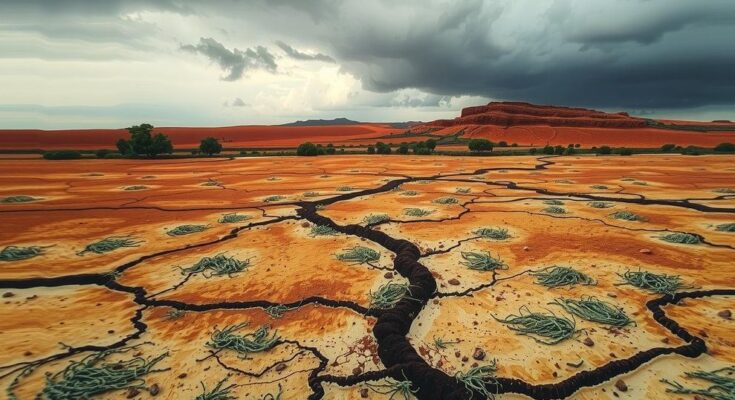Oxfam’s report reveals that nearly 116 million people in Eastern and Southern Africa lack access to safe drinking water, resulting in an 80% increase in hunger over five years. Climate change is intensifying water scarcity and extreme weather events, disproportionately affecting vulnerable populations. Urgent action and investment are required to address these challenges and support affected communities.
The climate crisis is severely exacerbating water scarcity in Eastern and Southern Africa, according to a new report by Oxfam. Nearly 116 million individuals across eight nations lack access to safe drinking water, resulting in a nearly 80 percent surge in hunger over the last five years. This alarming statistic coincides with the increased frequency of extreme weather events, such as droughts and floods, which devastate local economies and livelihoods.
The report highlights that vulnerable populations, including small-scale farmers, are facing dire consequences as climate change disrupts their ability to secure food. Small-scale agriculture relies heavily on rainwater, and as conditions worsen, food insecurity has escalated dramatically, notably in Ethiopia and Somalia. The study indicates that in Ethiopia, food insecurity has surged by 175 percent in the past five years, affecting millions.
Factors like deep inequality, persistent poverty, and inadequate water infrastructure investments have intensified the struggle for clean water, affecting predominantly women and girls who often travel great distances to access water. Sub-Saharan Africa only receives a fraction of global climate finance, and Oxfam urges wealthier nations to contribute more significantly towards climate justice. African governments must also enhance investments in water resource management and social protections to support the most affected communities.
Furthermore, the report reveals the geographic impacts of climate change across the eight identified countries, noting that regions such as Kenya have lost substantial land to increased dryness. This water crisis is amplified by the La Niña weather pattern, which is predicted to create further challenges for food availability and income. The urgency for action is clear, as these factors intertwine to create an ongoing humanitarian emergency.
In summary, the climate crisis is critically influencing water availability and food security in Eastern and Southern Africa. With millions lacking access to safe drinking water and facing extreme hunger, the need for international cooperation and investment in water management is imperative. Addressing climate injustice and enhancing support for vulnerable communities are essential to combat this escalating crisis.
Original Source: reliefweb.int




